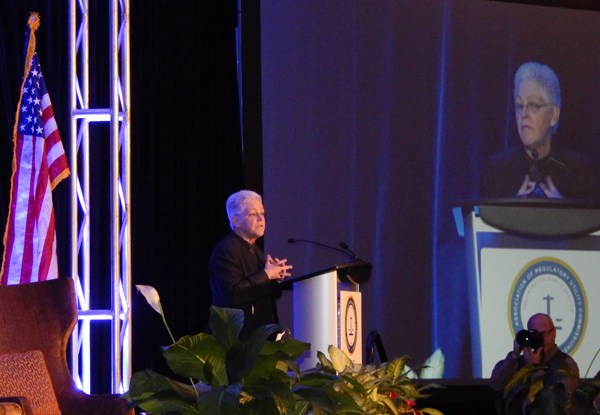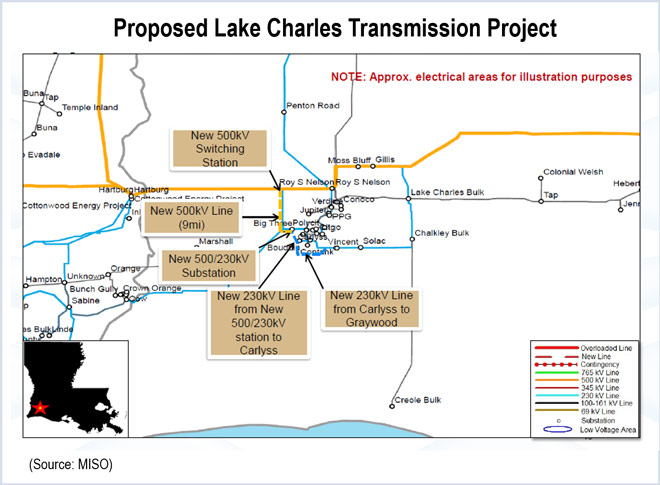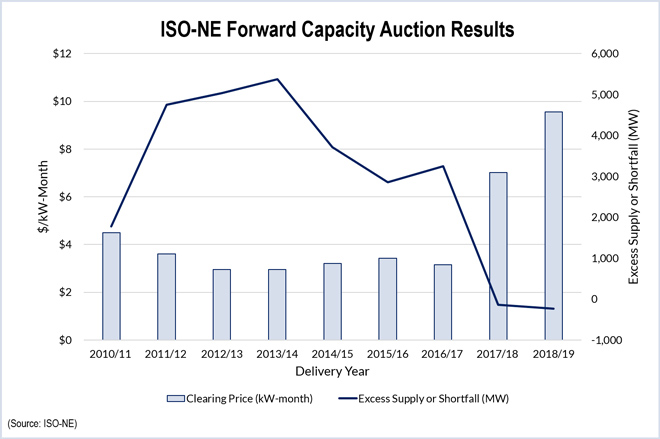DNREC Taking Public Comment on Controversial Refinery Water Permit

The Department of Natural Resources and Environmental Control in December said it had reached a draft agreement with refinery owner PBF Energy that calls for the company to spend up to $10 million to reduce aquatic life deaths at its water intakes. Environmentalists, however, have called for measures to force the company to build a more expensive cooling tower system for the refinery to recycle cooling water, rather than the current method of drawing and discharging water directly from the Delaware River.
More: The News Journal
ILLINOIS
Lawmakers Introduce Bill to ‘Fix’ RPS, Set New Standards
Illinois lawmakers have introduced a bill that would increase the state’s renewable portfolio standard to 35% by 2030. The current standard calls for 25% of the state’s energy to be generated by renewable sources by 2025.
The bill, sponsored by state Sen. Don Harmon and Rep. Elaine Nekritz, directs the Illinois Power Agency to develop a long-term plan for renewables. The bill also provides guarantees that utilities will support residential and community solar installations, and encourages construction of utility-scale solar to be built on brownfields.
The legislation also directs the state Environmental Protection Agency to develop market-based strategies to reduce carbon emissions in the state.
More: Midwest Energy News
INDIANA
House Committee Passes Bill Limiting Payments for Solar, Wind
A House committee last week passed a bill that would establish a fixed rate that utilities pay residential renewable energy owners, drawing protests from advocates.
The bill, HB 1320, would set a fixed rate that utilities would have to pay for electricity that small-scale solar and wind generators feed back to the grid. Opponents of the bill say they are worried that it would reduce incentives for small solar producers and that it could allow utilities to unfairly profit from reselling the power to other customers on their systems.
“For the last 10 years of my career, I’ve been working hard to develop a solar energy market in southern Indiana,” said Brad Morton, an Evansville resident and owner of Morton Solar. “HB 1320 takes away any little bit of economic incentive for rooftop solar and puts it right into the pockets of the utility companies.”
More: Indianapolis Business Journal
IOWA
Utilities Board Turns Down Request for Separate Clean Line Hearing

The commission, which needs to grant eminent domain rights as part of its approval process, said a separate hearing on eminent domain would inconvenience property owners along the transmission line’s route while providing a benefit to the company.
The company said the $2 billion project is going forward. The line would run from northwestern Iowa to Illinois. The project has already received approval from the Illinois Commerce Commission and the Federal Energy Regulatory Commission.
More: The Gazette
MANITOBA
Public Utilities Board Denies Manitoba Hydro’s Rate Hike

It was good news for those who think the company’s rate hike requests are too frequent. “We are pleased the PUB has taken the side of Manitobans who pay the bills,” said Hydro critic Ralph Eichler. “We see Hydro as an asset owned by all Manitobans that must be managed thoughtfully and it appears the PUB agrees with us on this.”
Manitoba Hydro may still apply for a rate hike later in the year, however.
More: The Reminder
MARYLAND
Bill Would Stop Fees for Customers Who Don’t Want Smart Meters
Two Maryland lawmakers are filing bills that would prohibit utilities from charging customers who don’t want smart meters on their homes or businesses.
Currently, the Public Service Commission allows customers to opt out of the various smart meter programs in the state, but it allows utilities to charge those customers fees to pay for the manual reading of their meters. Pepco charges an upfront fee of $75 for not getting a smart meter and a monthly charge of $11 to $17. Baltimore Gas & Electric, Delmarva Power & Light and Southern Maryland Electric Cooperative also charge to opt out of the programs.
A bill sponsored by Sen. Nathaniel J. McFadden and Del. Glen Glass would stop the fees, and also require utilities to notify customers before smart meters are installed. Pepco indicated that it would fight the bill.
More: The Gazette
MASSACHUSETTS
Report: Death of Cape Wind Project Shows States Need to Work Together
The death of the Cape Wind project is an illustration of everything wrong with U.S. wind energy policy, according to a report commissioned by the Clean Energy Group.
The $2.6 billion project off Cape Cod was becalmed last month when two utilities with power purchase agreements backed out after Cape Wind missed financing deadlines.
The report said that instead of securing approval by one state, future projects should get an entire region to support the projects. “While the Cape Wind project floundered amidst fierce local opposition, the project’s difficulties highlight a larger policy problem — it is difficult, if not impossible, for any single state to jumpstart the offshore wind industry,” the report states.
More: FierceEnergy
MISSISSIPPI
Supreme Court Orders Mississippi Power to Return Kemper-Related Rate Increase Money

The court’s decision concerns the PSC’s decision to allow rate recovery of Mississippi Power’s over-budget Kemper County integrated gasification combined-cycle plant. The commission allowed Mississippi Power to collect $125 million for construction costs in 2013 and another $156 million in 2014. The 582-MW plant has been plagued by cost overruns and delays.
The PSC, according to the ruling, never found that the funds were “prudently incurred,” a requirement for recovery. It also found that the PSC erred in not giving proper notice to the public about the company’s request for recovery, and by keeping confidential related information. “The commission’s decision to govern in a cloak of secrecy and grant confidentiality to rate-impact information was arbitrary and capricious,” the ruling said.
More: Power Magazine
MISSOURI
PSC Wants More Info from Clean Line on Grain Belt
The Public Service Commission wants more information from Clean Line Energy Partners about its proposed 700-mile Grain Belt Express transmission line project before it will consider approving it.
The PSC said new questions arose after a series of technical hearings in Jefferson City about the project, which would deliver electricity from Midwestern wind farms in the east.
Opponents seeking to thwart the project declared victory. The commission’s order for more information is “a very tall order and will take considerable time and funds to produce,” said a group called Block Grain Belt Express. “We interpret this as an extremely promising sign.”
More: News Press
NEBRASKA
Keystone Opponents Vow to Keep Fighting No Matter What Feds Do
Keystone XL pipeline opponents said they will continue to fight a change in state law that allowed former Gov. Dave Heineman to approve the pipeline’s route, bypassing the Public Service Commission.
A group called Bold Nebraska has filed suit in state court to overturn the law and to give the routing decision back to the PSC. Opponents are also pressuring lawmakers to overturn the law.
TransCanada, the company seeking to build the pipeline, said it was temporarily halting efforts to seek route approvals in Nebraska. That move came a week after a Nebraska district court judge issued a temporary injunction barring the company from invoking eminent domain along the northern Nebraska pipeline route.
More: Grand Island Independent
NEW YORK
Cuomo Calls to Boost Oil Spill Fund from $25 Million to $40 Million
A day after a train carrying crude oil derailed and burst into flames in West Virginia, Gov. Andrew Cuomo’s administration proposed raising New York’s soil spill fund from $25 million to $40 million and shifting its control from the state comptroller to the Department of Environmental Conservation.
The fund is used for immediate payment of cleanup costs and is financed by penalties paid by violators. Albany has become an important oil-train hub since the boom in Bakken crude.
More: PennEnergy
NORTH CAROLINA
Supreme Court Sides with Duke on 2 Challenges to Rate Hike

The rate increase was based partly upon a 10.2% return on equity that the commission allowed Duke. NC WARN had argued that the company’s allocation of costs discriminated against residential customers. In December, the court upheld the company’s 2012 rate case. Attorney General Roy Cooper, who is eyeing a 2016 gubernatorial bid, has challenged several Duke rate increases.
More: Charlotte Observer
NORTH DAKOTA
TransCanada Proposes Another Pipeline – This One to Send Oil into Canada
The company that wants to build the Keystone XL pipeline is now proposing a second pipeline — this one to deliver oil from the state into Canada.
TransCanada is proposing to build a $600 million pipeline to go from northwestern North Dakota to Saskatchewan. The Upland Pipeline will need approval from the U.S. State Department, the Public Service Commission and Canada’s National Energy Board.
More: WDIO
OHIO
Supreme Court Rules States have Exclusive Authority over Fracking
The state Supreme Court has ruled that states have “exclusive authority” over hydraulic fracturing, and that cities and counties cannot regulate or ban the practice.
The 4-3 vote held that the Department of Natural Resources in 2004 was given the power to license and regulate where the state’s wells can be drilled. The ruling was seen as a victory for oil and gas producers, who often faced local opposition.
“We have consistently held that a municipal-licensing ordinance conflicts with a state-licensing scheme if the local ordinance restricts an activity which a state license permits,” wrote Justice Judith L. French in the majority opinion.
More: The Columbus Dispatch
PENNSYLVANIA
State Audit IDs Millions in Possible FirstEnergy Savings
A performance audit of FirstEnergy’s four utilities in the state identified ways to save nearly $20 million in one-time savings and a further $3.7 million annually.
The state audit made 28 recommendations. FirstEnergy has accepted 25 of them and is working to put new procedures in place by the end of 2019. The audit looked at 14 areas such as customer service, emergency preparedness and inventory management. The auditors said West Penn Power could save $8.4 million in inventory control improvements alone.
More: Pittsburgh Post-Gazette
VERMONT
Public Service Department Asks for NRC Hearings on Yankee Plan

The Nuclear Regulatory Commission said last week that it is setting up an Atomic Safety and Licensing Board panel to review the proposed changes. Entergy has said it wants to reduce its emergency responsibilities to reflect the plant’s lower risk profile.
More: Manchester Journal
WEST VIRGINIA
PSC Approves New 549-MW Combined-Cycle Plant
The Public Service Commission issued a siting certificate to Moundsville Power for a 549-MW combined-cycle natural gas plant in Marshall County that will also be the first U.S. plant able to burn ethane.
The certificate allows Moundsville to seek financing for the $815 million project. When completed in early 2018, the plant will become a wholesale generator in the PJM market. In addition to helping offset carbon emissions from coal-fired plants, the Moundsville project will secure its natural gas and ethane from state sources.
More: PowerMag
WISCONSIN
Walker Appoints Ex-MG&E Exec to Cabinet Position

Gov. Scott Walker named a former Madison Gas & Electric executive to head the state Department of Administration.
Scott Neitzel was named as the department’s new secretary a week after he abruptly resigned from a senior vice president position at MG&E. He is replacing Mike Huebsch, who is moving to the Public Service Commission.
Neitzel gave no reason for leaving MG&E, where he’d worked since 1997. He left behind a $315,180 salary. Before working at MG&E, he served a five-year term with the PSC.
More: Wisconsin State Journal
Compiled by Ted Caddell









